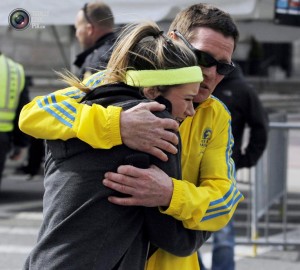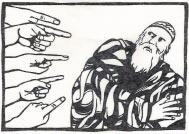 Some Americans responded to the ebola epidemic in West Africa by offering to care for the victims. Unfortunately, most of us were swept up in fear of the disease’s dreadful symptoms and mortality rate. Proposals circulated to block all flights to and from Liberia, Sierra Leone, and Guinea. Emblematic of the hysteria, a Catholic school teacher and registered nurse from Louisville, Kentucky was forced to resign after returning from a medical mission to Kenya, even though she was never closer than 3,000 miles from the ebola outbreaks.
Some Americans responded to the ebola epidemic in West Africa by offering to care for the victims. Unfortunately, most of us were swept up in fear of the disease’s dreadful symptoms and mortality rate. Proposals circulated to block all flights to and from Liberia, Sierra Leone, and Guinea. Emblematic of the hysteria, a Catholic school teacher and registered nurse from Louisville, Kentucky was forced to resign after returning from a medical mission to Kenya, even though she was never closer than 3,000 miles from the ebola outbreaks.
Fundamental changes in how we treat African visitors and returning medical volunteers were proposed for a disease that ultimately killed only two people on US soil. One can only imagine the draconian measures that would be adopted in a real pandemic.
Continue reading “Love in the Time of Ebola”






 Although this lofty goal was my broad purpose for being in the Adriatic port city, my specific purpose at that moment in Croatia was to buy a stamp to send a postcard to my wife. While waiting in line, I asked an English-speaking native next to me, “What’s the best way to say ‘thank you’ in Serbo-Croatian?†A stony silence fell upon the entire room until my formerly-friendly neighbor said, “There is no such language. We speak Croatian.†Fair enough. I pressed on, “So how do you say ‘thank you’ in Croatian?†“Hvala,†she replied. But I couldn’t let it go there, so I asked, “And how do they say it in Serbia?†Everyone looked a bit sheepish because the Serbs also say “hvala.â€
Although this lofty goal was my broad purpose for being in the Adriatic port city, my specific purpose at that moment in Croatia was to buy a stamp to send a postcard to my wife. While waiting in line, I asked an English-speaking native next to me, “What’s the best way to say ‘thank you’ in Serbo-Croatian?†A stony silence fell upon the entire room until my formerly-friendly neighbor said, “There is no such language. We speak Croatian.†Fair enough. I pressed on, “So how do you say ‘thank you’ in Croatian?†“Hvala,†she replied. But I couldn’t let it go there, so I asked, “And how do they say it in Serbia?†Everyone looked a bit sheepish because the Serbs also say “hvala.â€